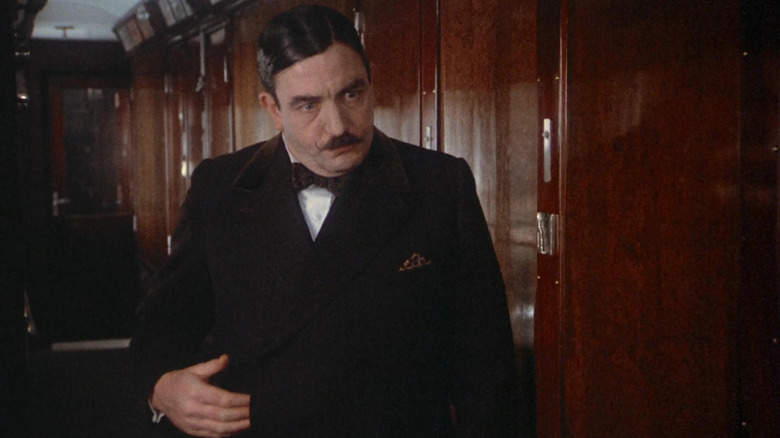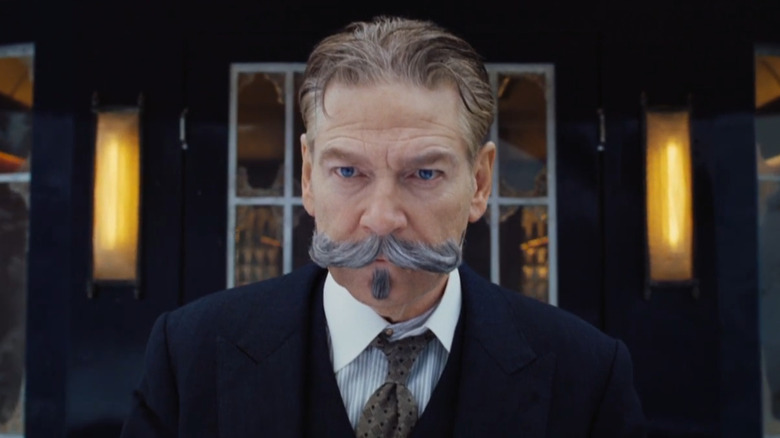Agatha Christie Didn't Like One Thing About The Original Murder On The Orient Express Movie
The 1974 film "Murder on the Orient Express" was the first film adaptation of Agatha Christie's beloved 1934 novel of the same name, and it was also perhaps the best of them. The movie earned more than 10 times its budget at the box office, and in the years since, it's become the gold standard for Christie film adaptations. It seemed like nobody had a bad thing to say about the movie, except, of course, for Agatha Christie herself.
"It was well made except for one mistake," Christie reportedly said. "It was Albert Finney as my detective Hercule Poirot. I wrote that he had the finest mustache in England — and he didn't in the film. I thought that a pity — why shouldn't he have the best mustache?"
Looking back, it's hard to argue with this critique. Finney's mustache in this movie is respectable, sure, but it is not impressive enough to stick out to the average viewer, let alone impressive enough to be called the finest mustache in all of England. Finney made for a fine Poirot, but his mustache should be at least twice as big and twice as imposing. It should be big enough to bring a smile to the viewer's face when they see it for the first time. It should spark conversation among viewers as they're leaving the theater. Perhaps director Sidney Lumet wanted to keep the story grounded, but Poirot's mustache is always supposed to be larger than life.
Say what you want about the new Poirot films, but that mustache is spectacular
I don't know what Agatha Christie would've thought of the new Poirot movies, directed by Kenneth Branagh, but she undoubtedly would've approved of that mustache. Poirot's mustache is one that immediately elicits some light giggles from the audience during its first appearance in every theater I've seen it in. It's a mustache that insists upon itself, as any good Poirot mustache should.
Poirot's facial hair is so impressive that you might be surprised to find that there are people out there (total squares, I assume) who don't like it. Those viewers should listen to Branagh's explanation for it: in a press interview for "Orient Express," he explained how he was aware of Christie's disappointment with Finney's mustache, and he agreed that the mustache was a crucial aspect of Poirot's character:
"Poirot could, as he does, and he knows this is the case, he uses the moustache as a mask, he hides behind it, he observes from it, and people dismiss him because of it. It gets a big reaction. It's a reaction that means, as Daisy Ridley's character says in the novel of him, she said, 'He was a perfectly ridiculous little man with that silly moustache. He was the sort of man one could never take seriously.'"
Branagh understood that the mustache isn't a fun quirk of Poirot's character; it's his secret weapon, the thing that makes his suspects feel comfortable enough to think they can outsmart him. Branagh's movies may not be the most faithful of the Poirot adaptations when it comes to the literal plot, but they've always stayed true to the source material on the thing that matters most.

